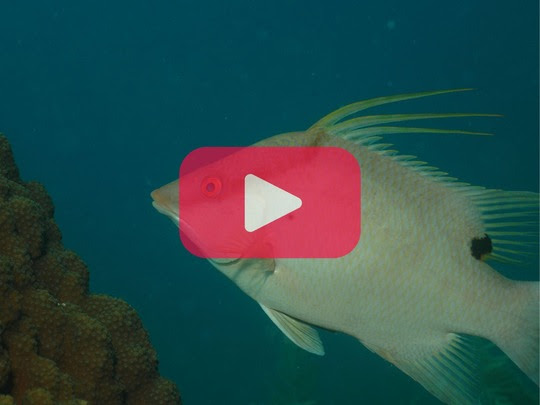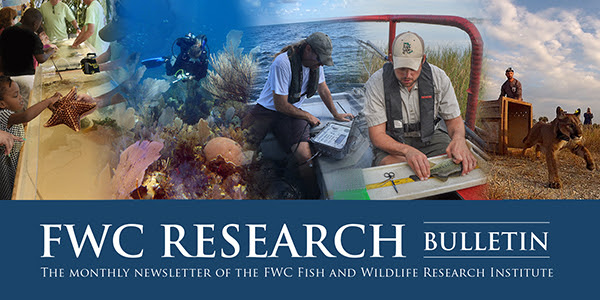|
FWC is documenting reports of abnormal fish behavior and a series of smalltooth sawfish deaths in the Lower Keys. At this time, the cause of the abnormal behavior and mortalities is not known, but FWC is actively collecting and analyzing samples. Please visit our webpage for the most up to date information on sampling, reports, and mortalities. This event response website will be updated weekly with the most current information on the Florida Keys Abnormal Fish Behavior Event: https://www.myfwc.com/ How can you help? Report all healthy, sick, injured or dead sawfish to FWC’s Sawfish Hotline at 1-844-4SAWFISH (1-844-472-9347) or via email at Sawfish@myfwc.com. Include the date, time and location of the encounter, estimated length, water depth and any other relevant details. Under the Endangered Species Act, it is illegal to catch, harm, harass, or kill an endangered sawfish. If you see abnormal fish behavior, fish disease, and fish kills, submit a report to FWC’s Fish Kill Hotline either through the web form or by calling 800-636-0511. 
|

Oil Spill and Disaster Management
The FWRI's proactive disaster management approach, led by dedicated scientists in our Information Science and Management section, involves meticulous planning, responsive actions, and specialized restoration efforts. Scientists utilize comprehensive assessments and the Environmental Sensitivity Index to prioritize areas of concern and enable a timely response to disaster. Read more about this collaborative effort and learn about two successful recoveries in Florida.

Amberjack Tagging with the MERR Lab
Another day in the office! The Movement Ecology and Reproductive Resilience (MERR) Lab, a collaborative research group between FWRI and UF, had a successful day tagging Greater Amberjack (Seriola dumerili) in the Gulf of Mexico. Near perfect visibility in the water allowed biologists to spot individuals feeding 60 feet below the surface.
Once caught, the fish were implanted with acoustic tags to help biologists better understand their movements between habitats as well as spawning site selection and fidelity. As Greater Amberjack in the Gulf of Mexico are overfished and subject to overfishing, research to learn more about their reproductive dynamics and associated movements to and from spawning grounds is critical for this species. On this trip, our biologists successfully caught, tagged, and released an additional 9 Greater Amberjack, adding to the total number being tracked across a range of habitats from shallower nearshore sites to deepwater spawning habitats in the Northern Gulf of Mexico and in the Florida Keys. Learn more about this work and other Gulf tracking research on the iTAG webpage.
To report a tagged fish call 1-800-367-4461, email tagreturn@MyFWC.com, or report on our webpage.

FWRI Celebrates Manatee Appreciation Day
It’s Spring! Water temperatures are rising, and manatees are leaving their winter warm water refuges and are more likely to be seen in coastal waters, estuaries, tidal creeks and freshwater systems. Boaters! Help celebrate Manatee Appreciation Day everyday by respecting speed zones, keeping an extra eye out for manatees on the water, and ensuring all garbage and fishing equipment is properly secured and disposed of.
If you see an injured, entangled, orphaned or dead manatee, please report it as soon as possible to our Wildlife Alert Hotline: 888-404-FWCC (3922).
Looking for other ways to support manatees? Florida residents can show their appreciation everyday by purchasing a Save the Manatee License Plate! Support manatee research, rescue and, conservation efforts by getting your very own manatee license plate today. And, USPS is now offering a stamp to raise awareness for manatees and the challenges they face. Learn more online.

Hogfish Research in Dry Tortugas National Park
FWRI scientists in the Florida Keys have partnered with Dry Tortugas National Park to study hogfish (Lachnolaimus maximus) in a no-take marine reserve of the park, known as the Research Natural Area. Protected since 2007, there is no anchoring and no fishing allowed in the 46 square mile reserve. This provides FWC scientists with an opportunity to study an unfished population of hogfish in south Florida which is critically important for establishing a baseline for hogfish movement and food web interactions without the effects of fishing pressure. This baseline will ensure that FWC is able to provide the best management of the hogfish fishery. Watch the video!
New on MyFWC.com/Research
We hope you enjoy these articles that have been recently added/updated on our website:
Red Tide Current Status
Red Tide-Related Hotlines and Information Sources
2024 Manatee Mortalities
Annual Rescue Summaries [Manatee]
New Publications
Panhandle Scallop Sitters
Internship Opportunities
Ongoing Shellfish Work at the New Crystal River Field Lab
HAB Monitoring Database
[Florida Coral Rescue] News and Updates
Stone Crab Catch Data
Seagrass Integrated Mapping and Monitoring Program
Florida Keys Abnormal Fish Behavior Event 2023 - Present
Commercial Fisheries Landings in Florida
2023 Statewide [Sea Turtle] Nesting Totals
Loggerhead Nesting in Florida
Green Turtle Nesting in Florida
Leatherback Nesting in Florida
Our Mission
Through effective research and technical knowledge, we provide
timely information and guidance to protect, conserve, and manage
Florida's fish and wildlife resources.



No comments:
Post a Comment